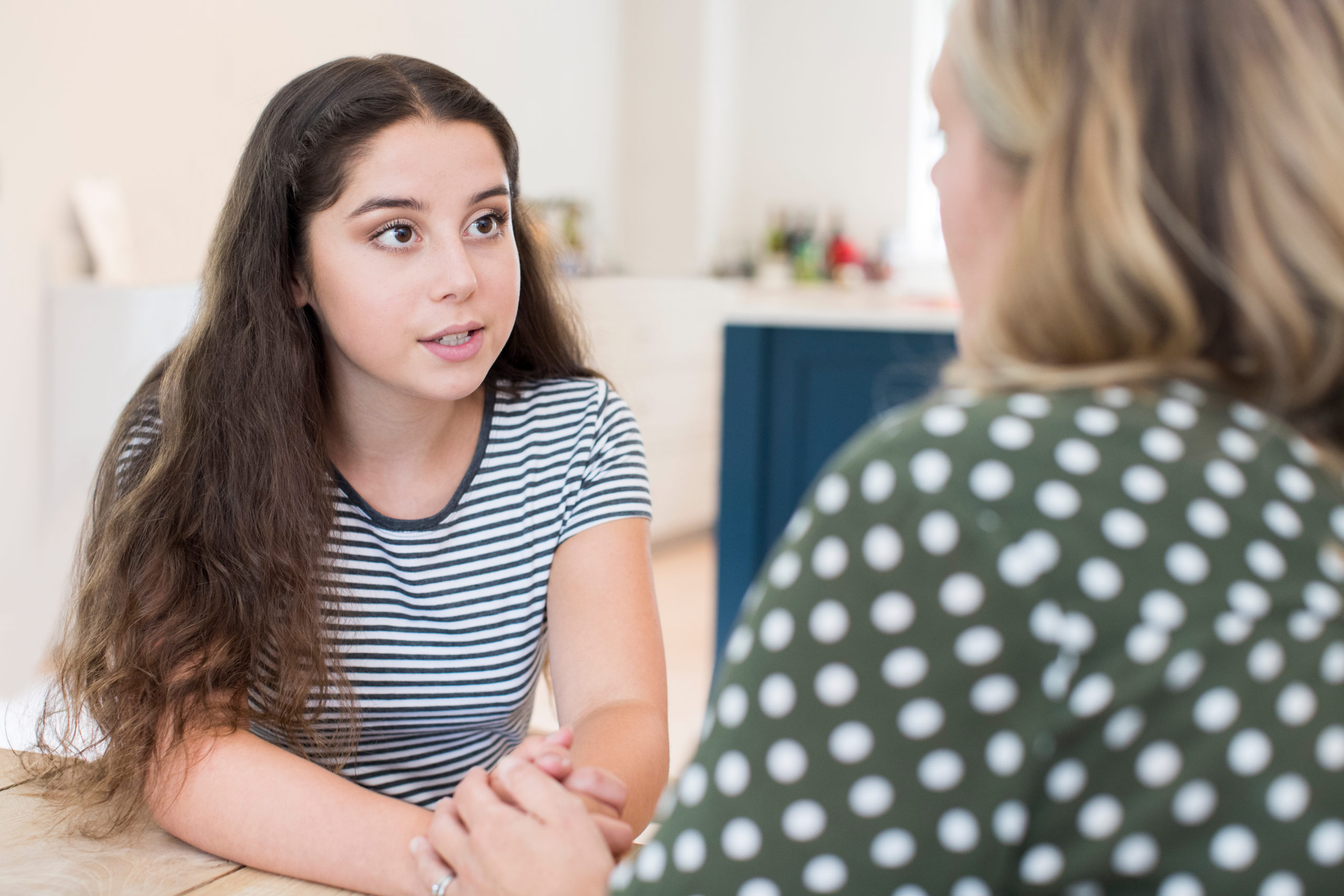Speaking with Your Children about Drug Dangers
All parents and caregivers have important conversations with their children regarding safety – look both ways before you cross the street, wear your seatbelt, tell a teacher if someone is bullying you at school. These are simple lessons that are easy to teach. What do you do then, when you’re less comfortable with the topic?
Talking about drugs with children is not an easy landscape to navigate. It can be riddled with difficult to answer questions, scary consequences and the subject may be personal for some parents. When you’re ready to have a conversation about drug dangers with your kid, use this article as a guide so you’ll know you’ve covered your bases and feel confident with the information you provide.
How to have a hard conversation about substances with your child
Consider age and maturity level: The first key point to consider is that not all kids will need to have the same conversation about drugs. It’s important to use terms that your child can understand. Explain to younger kids that drugs are against the law and hurt a person’s body. For older kids, use facts to explain how damaging substances can be and teach them how to resist pressure to use drugs or alcohol.
Take a stand: While for many topics children should be allowed to explore and form their own opinions, drug safety is not one of them. Evidence shows that a parent’s views on substance use strongly impacts the likelihood of a child using, so take a firm stand against drugs.
Make time for the conversation: According to an article in Science Daily, open conversation about drug and alcohol use can reduce the risk of a child using it later on in life. Start having open conversations about less challenging topics to build up to talking about drugs.
Build trust: Talking about the dangers of drugs and alcohol only takes a few minutes. Cultivating trust so the conversation doesn’t fall on deaf ears takes much longer. A trusting relationship is critical to the effectiveness of talking about drugs with children.
Talk before your kid is exposed to substances: There are no benefits to delaying the important conversation around drug dangers. The longer a parent waits to educate a child on substances, the more it is that the child will be exposed to drugs or alcohol. A touchy subject and an awkward conversation are only temporary. Substance use could affect your child for life.
Facts are your friend: Doing some research in advance will provide some pertinent information to include when you talk to your child about the dangers of drugs. The National Institute on Drug Abuse has a fact page for teens, with articles about specific substances and their effects on a person’s body and brain. Sharing facts also lets your children know that you’re a good source of information.
Silence sends a message: Talking about drugs with children can have a positive influence on whether they experiment with drugs later on. Not talking about drugs sends a message, too. Parents who neglect to educate their children on the consequences of drug use may give their kids the impression that drugs are not that bad.
There are plenty of other resources to help you have an effective and loving conversation with your children. Check out these helpful tools.
- Substance Abuse and Mental Health Services Administration: Five Conversation Goals
- National Institute on Drug Abuse: 10 Questions Teens Ask About Drugs and Health
- Kids Health: What You Need to Know About Drugs (for kids)
- Teens Health: Drugs and Alcohol (for teens)
Key points when talking about drugs with children
When you start the conversation around drugs and alcohol, there are some major points to hit on. In order to convey a clear and comprehensive message, consider using this outline as a tool for discussion with your kid, making adjustments for age where appropriate.
- Open the conversation by asking a casual question, such as “what do you know about drugs?” or “what do you think about people using drugs?”
- Share a definition of drugs, such as “drugs are like medications that you use when you’re sick, except that they hurt people instead of helping them”
- Be clear that drugs may feel good at first, but over time they hurt more than they help
- Ask, “why do you think people use drugs or drink too much alcohol?”
- Explain that people may begin using substances for a number of reasons, but they keep using them because it’s hard to stop when their body gets used to it
- People use drugs for the first time to avoid pain, cover their emotions, feel good or because friends want them to
- Share that peer pressure can lead someone to struggle with drug or alcohol use
- It may be appropriate to ask directly, “has anyone ever offered you drugs or alcohol?”
- If not, consider asking “what would you do if someone really wanted you to use drugs or alcohol?”
- Make a plan to build the skills to say no
- Practice with role plays, decide on a code word to text in emergency situations or help your kid come up with something to say to avoid drugs without feeling embarrassed or uncomfortable
- Vocalize your intention to keep the conversation going, and your commitment to helping your child if a sticky situation around drugs ever arises
Talking about drugs is one thing. Having a child who uses drugs or alcohol is an entirely different challenge. Tapestry can help. Tapestry provides services for adults and adolescents struggling with mental illness, and can be the key to helping your family through a hard time. Call 828-490-4032 today.






